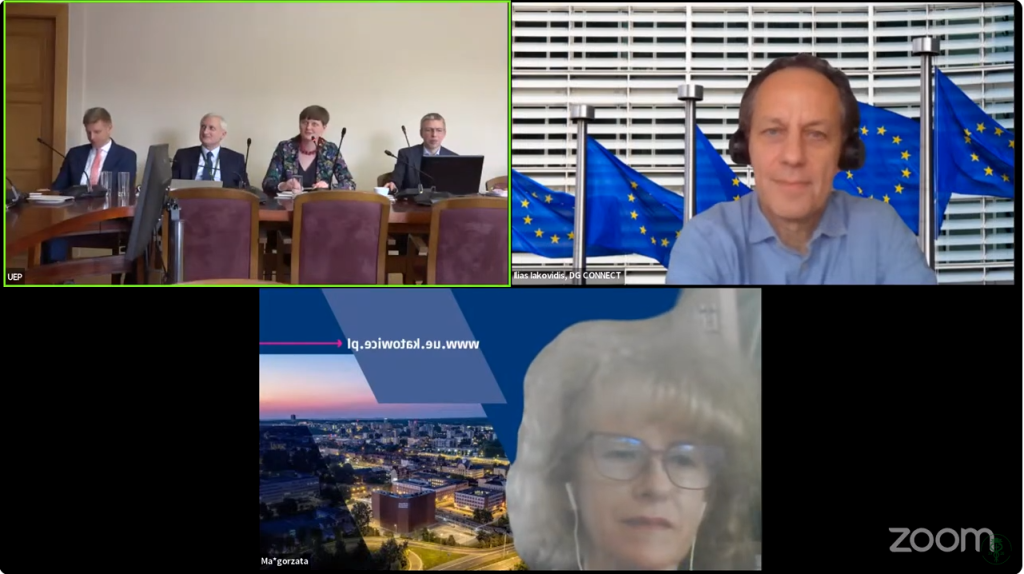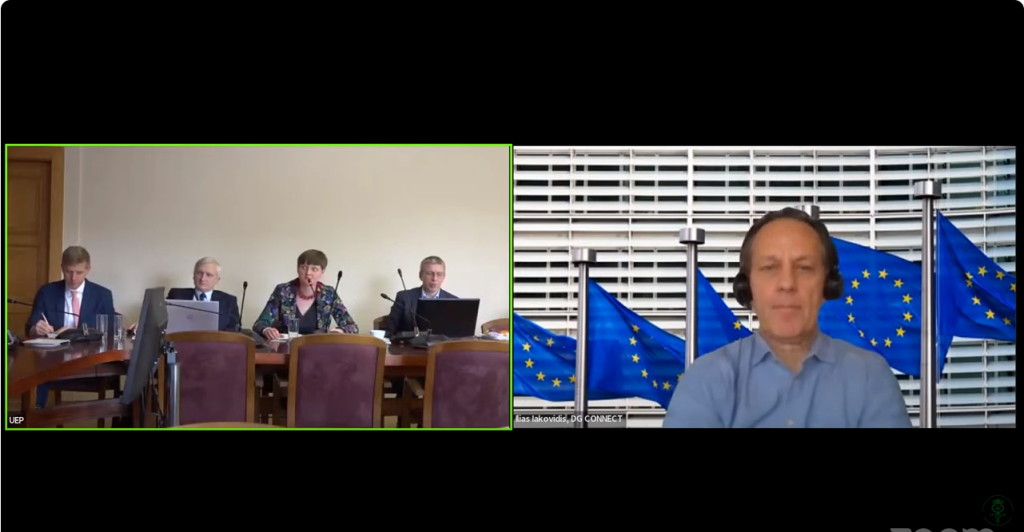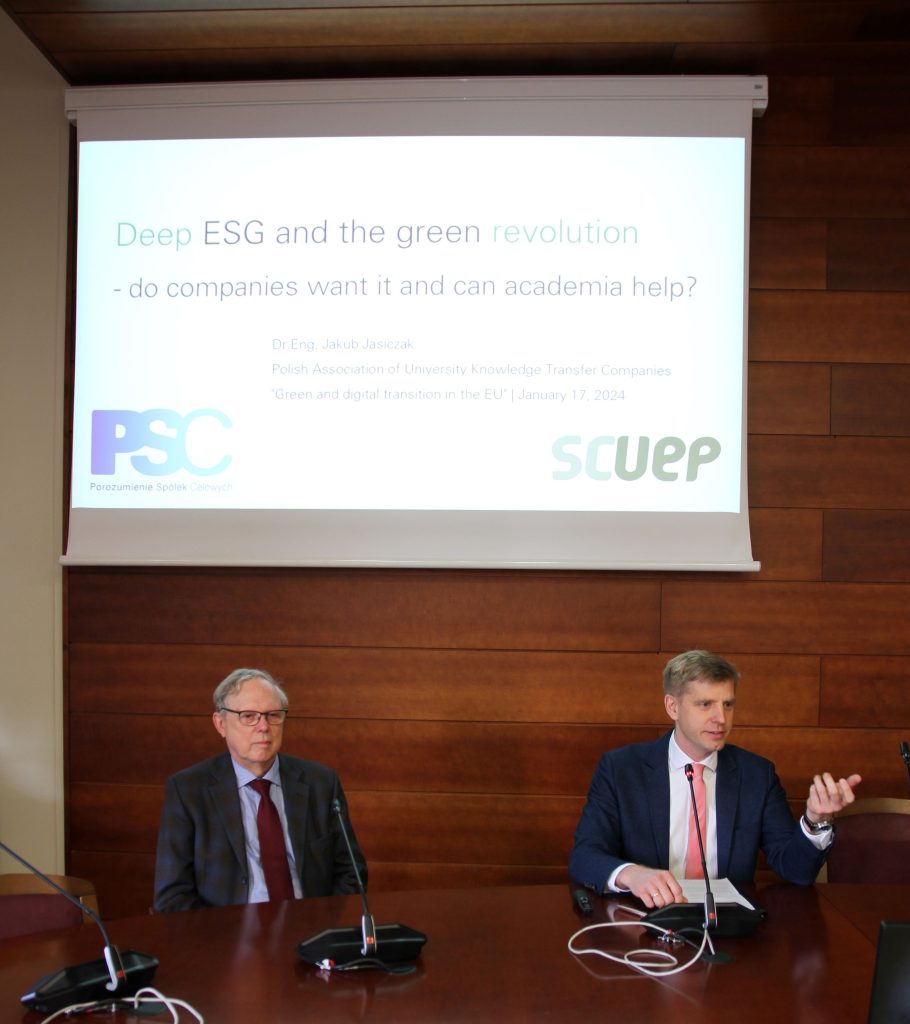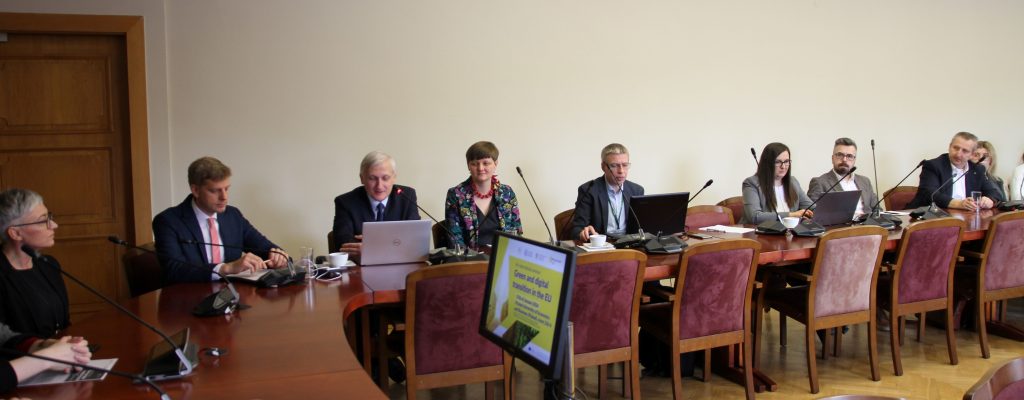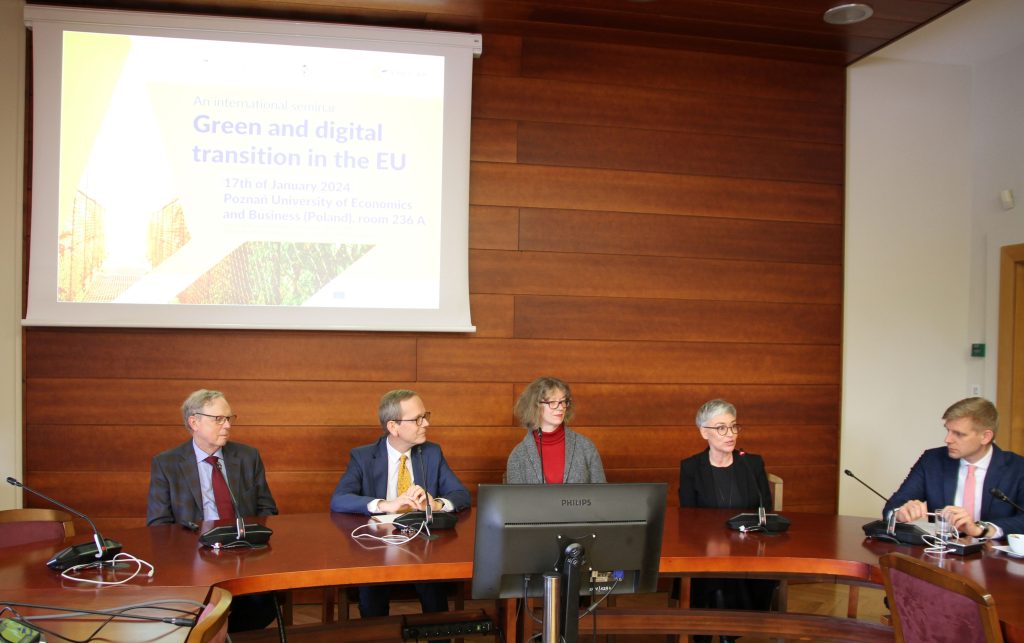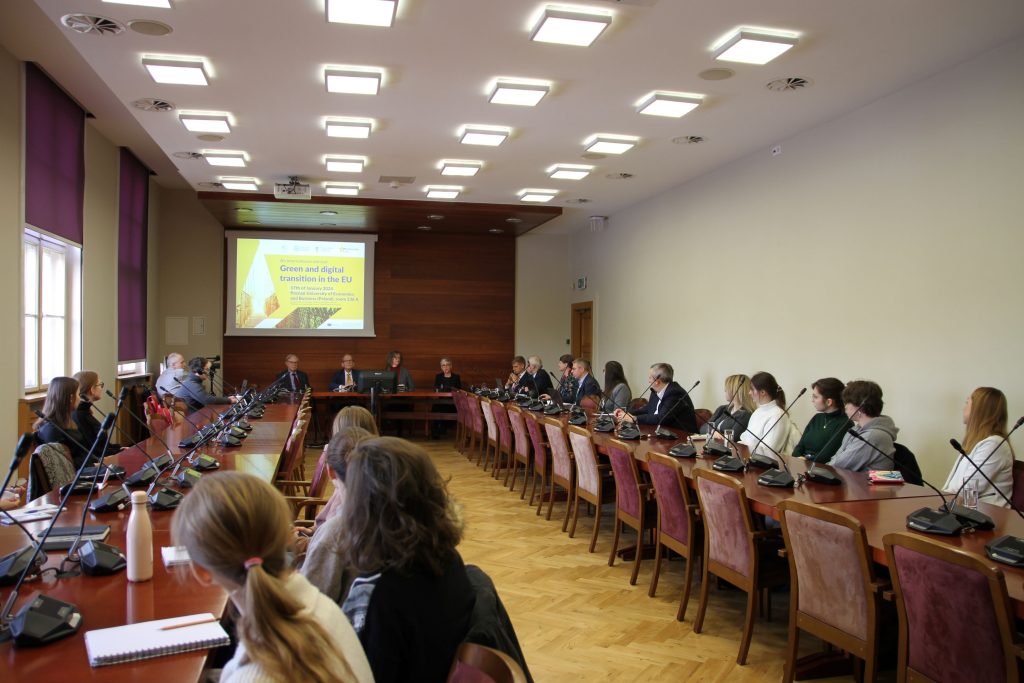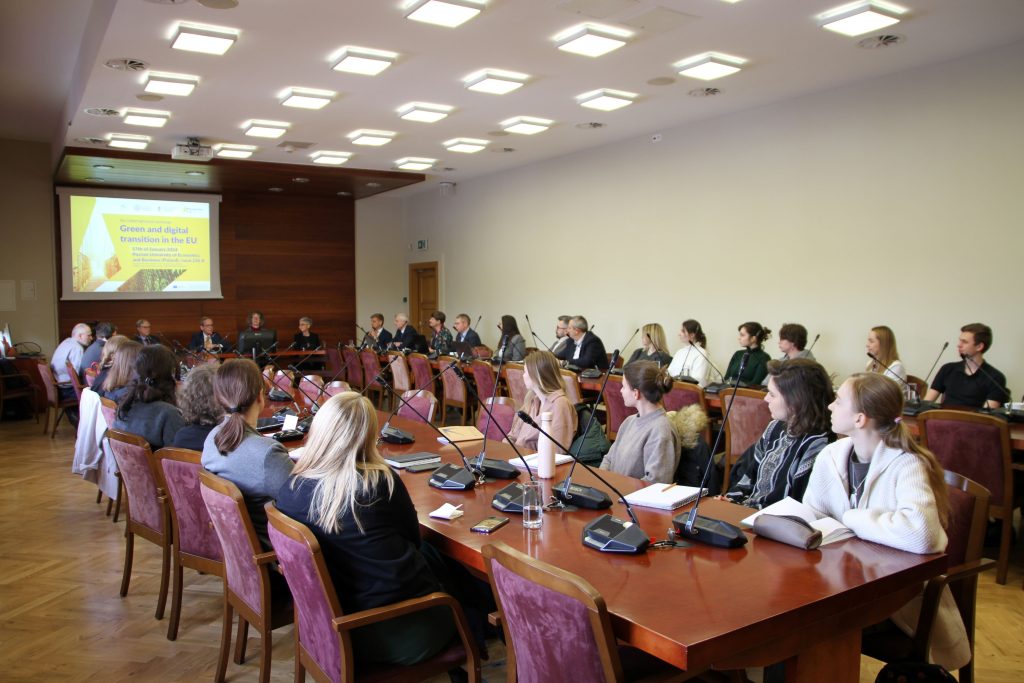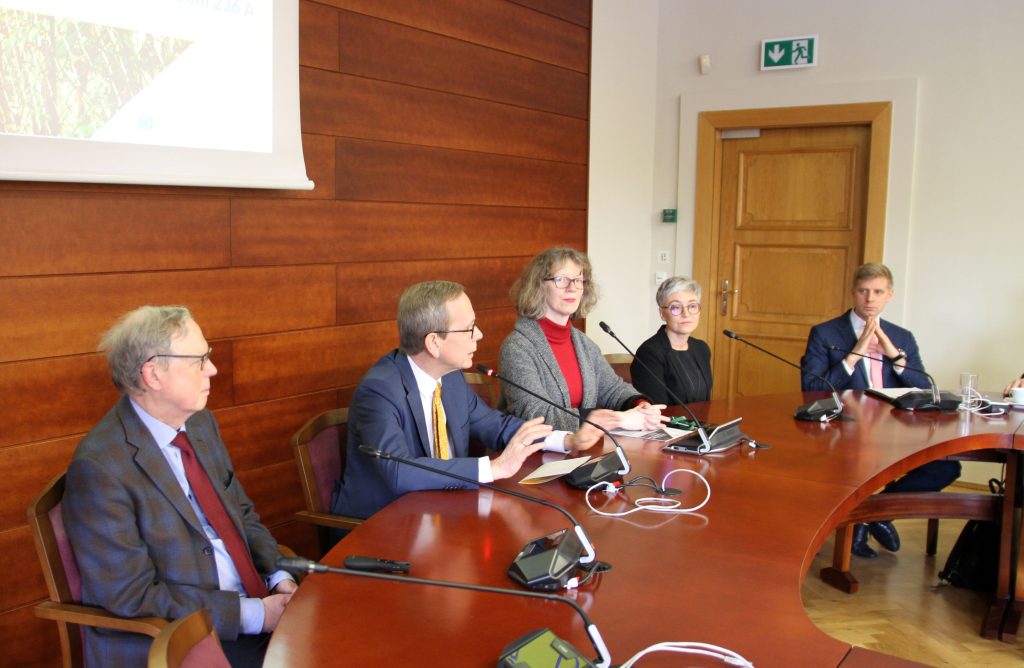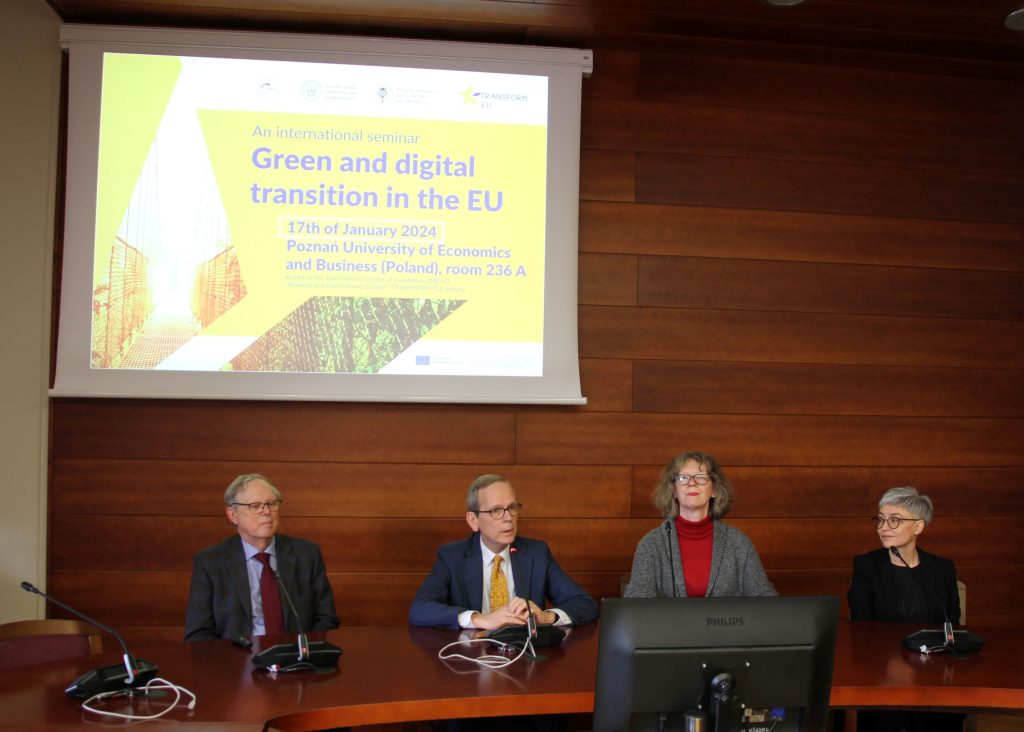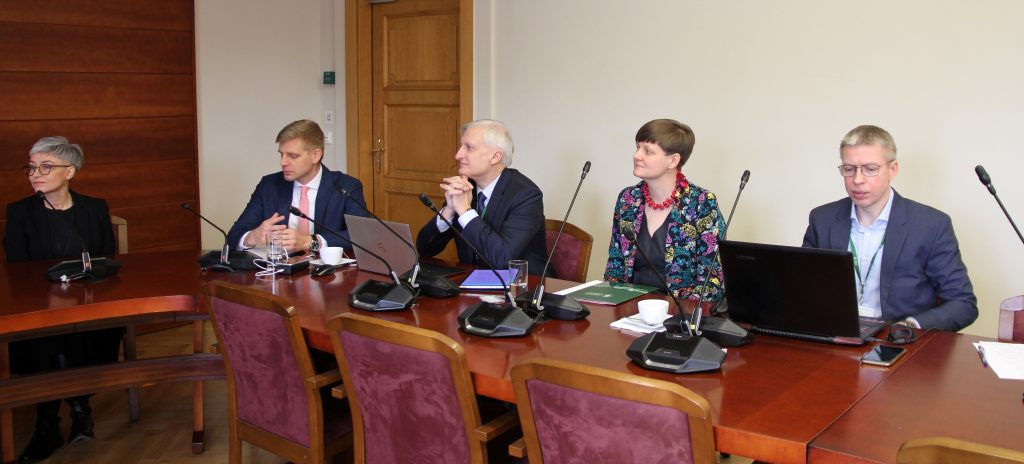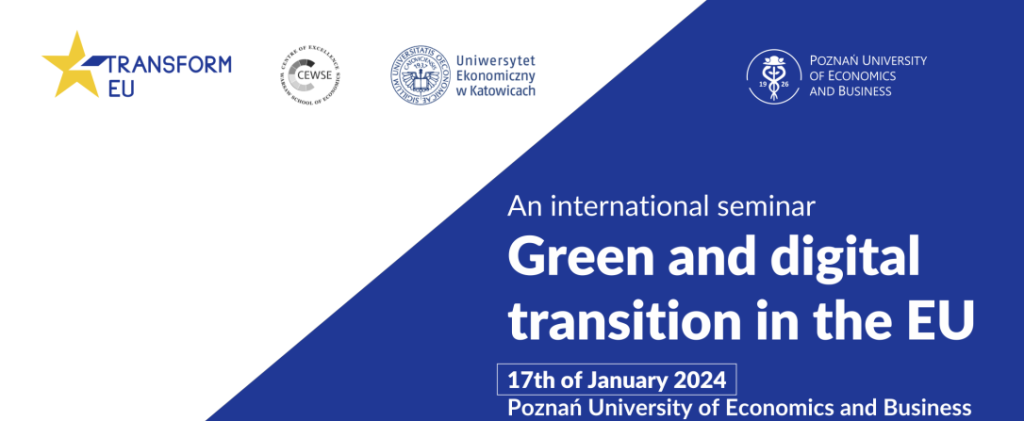
The seminar was opened by the Rector of the Poznan University of Economics and Business, Prof. Dr. Maciej Żukowski, and the Director of the Institute of International Business and Economics, Prof. Ewa Minska-Struzik and the TRANSFORM EU project coordinator, Prof. Ida Musiałkowska.
The seminar was divided into two sessions. In the first session, moderated by Prof. Krzysztof Walczak, Prof. Dr. Wojciech Cellary of the WSB Merito in Poznań and Dr. Eng. Jakub Jasiczak, CEO of the PUEB Knowledge Transfer Company, presented their speech.
During his speech, Prof. Wojciech Cellary focused on the impact of artificial intelligence on the digital transformation of the economy, particularly in the field of education and business models. He further pointed to the integration of the physical and virtual worlds, saying that technologies are ready for this, but societies and organizations are not. He emphasized that the world of higher education is changing. The current model of the economy involves lifelong learning, bringing together people from different age groups in the educational process, taking classes remotely (due to the younger generation’s preference for social media and performing professional duties in different locations). In turn, Dr. Jakub Jasiczak devoted his speech to cooperation between companies and higher education institutions in the area of green transformation and implementation of ESG strategies, making a diagnosis and critical assessment of the situation in this area. He pointed out that it is SMEs that have the biggest problem with ESG implementation. They don’t see the benefits of implementing environmental strategies into their business, it is just a legal requirement for them. A way to encourage the SME sector to implement ESG policies is for it to work more closely with researchers and for them to offer concrete scientific solutions that can convince companies to follow the path of sustainability.
The second session was moderated by Dr. Dorota Czyżewska-Misztal. The session was opened by Dr. Ilias Iakovidis from the European Commission (DG CONNECT), whose speech focused on the socio-economic and environmental benefits of digital and green transformation. Dr Iakovidis also emphasised the need for interdisciplinary and cross-sectoral action. He drew attention to the multidimensionality of the concept of sustainability, stressing that there are no scientists able to optimize sustainability in the economic, social and environmental areas. Digitalization should therefore be harnessed in the service of sustainable development. The best way to use digital technologies is to make the entire economy circular. Later in the speech, Dr. Ilias Iakovidis’ deliberations focused on the European Green Deal Coalition and the impact of this initiative on sustainable digitization in Europe.
Prof. Malgorzata Dziembala’s speech, in turn, dealt with the impact of the European Union’s Cohesion Policy 2021-2027 on the sustainable development of the EU economy, particularly at the regional level. Her deliberations were enriched by the experience of cooperation within the Cohesion for Transitions (C4T) Community of Practice.
During the discussion, attention was paid to the challenges arising from the application of artificial intelligence in many areas of the economy. Stressing the importance of new technologies in the functioning of the modern economy, they also pointed out the problems in the labor market and in education that may result from this. Participants in the seminar considered the role of universities in realizing the goals of green and digital transformation and implementing ESG strategies in companies. In addition, they stressed the need for changes in education to better adapt graduates to the changing labor market.
Summing up the seminar, Prof. Ida Musiałkowska stressed that carrying out a green and digital transformation is a key challenge for the European Union and its member states for the coming years, but it is the use of new technologies, including artificial intelligence, that can foster the realization of sustainable development. Synergy and close cooperation between business, universities and public authorities at different levels is needed to address the multidimensional challenges of the twin transition.
Look at the photo gallery
